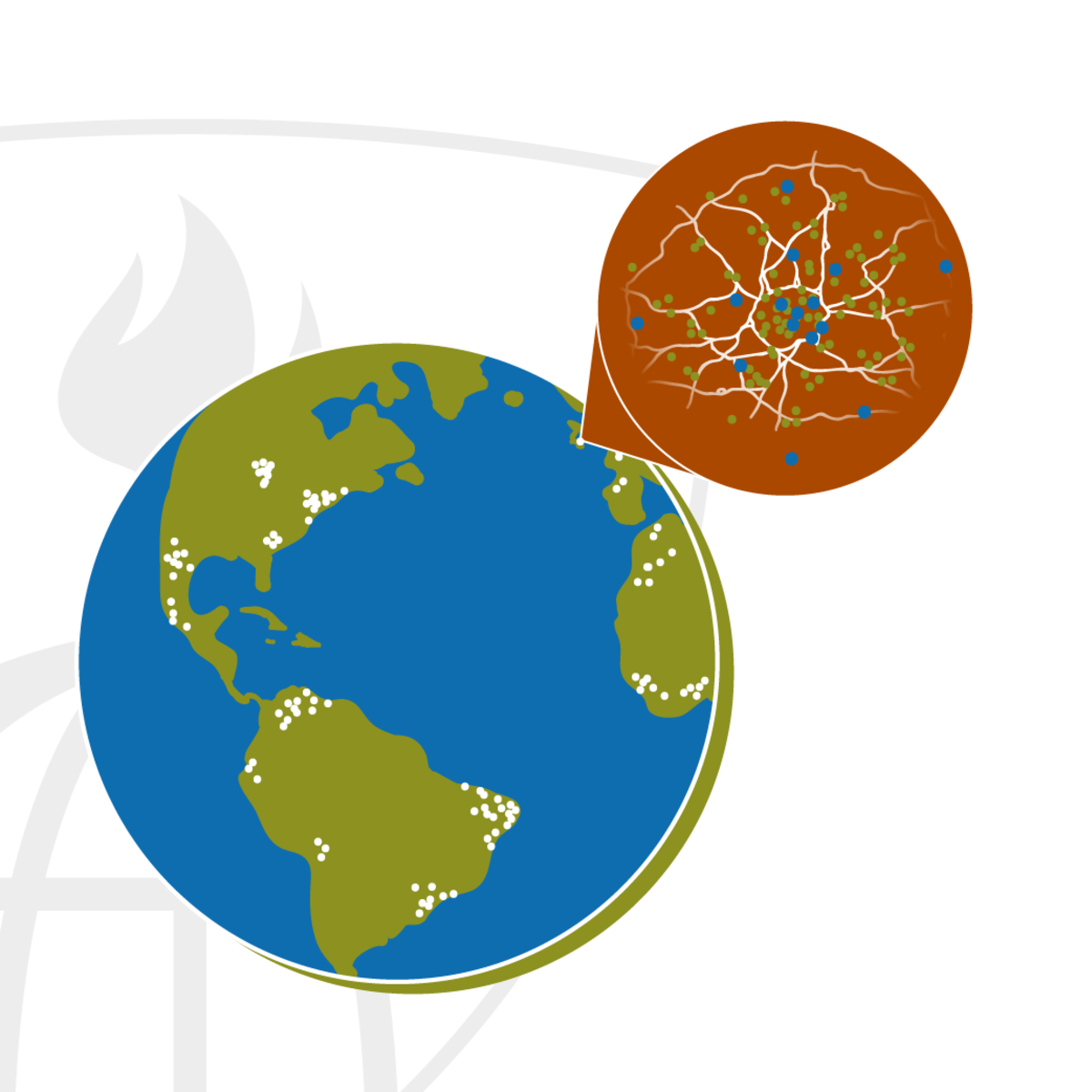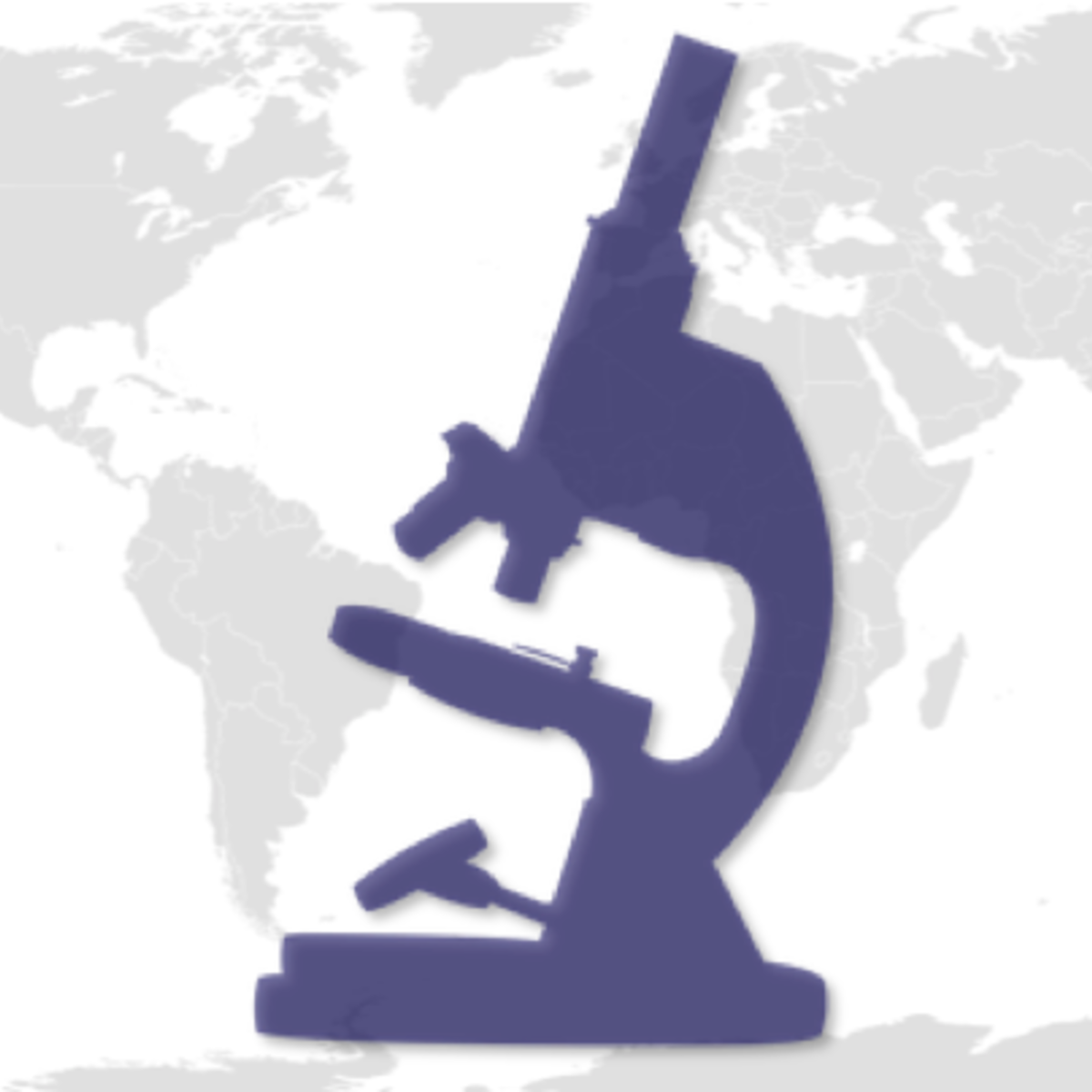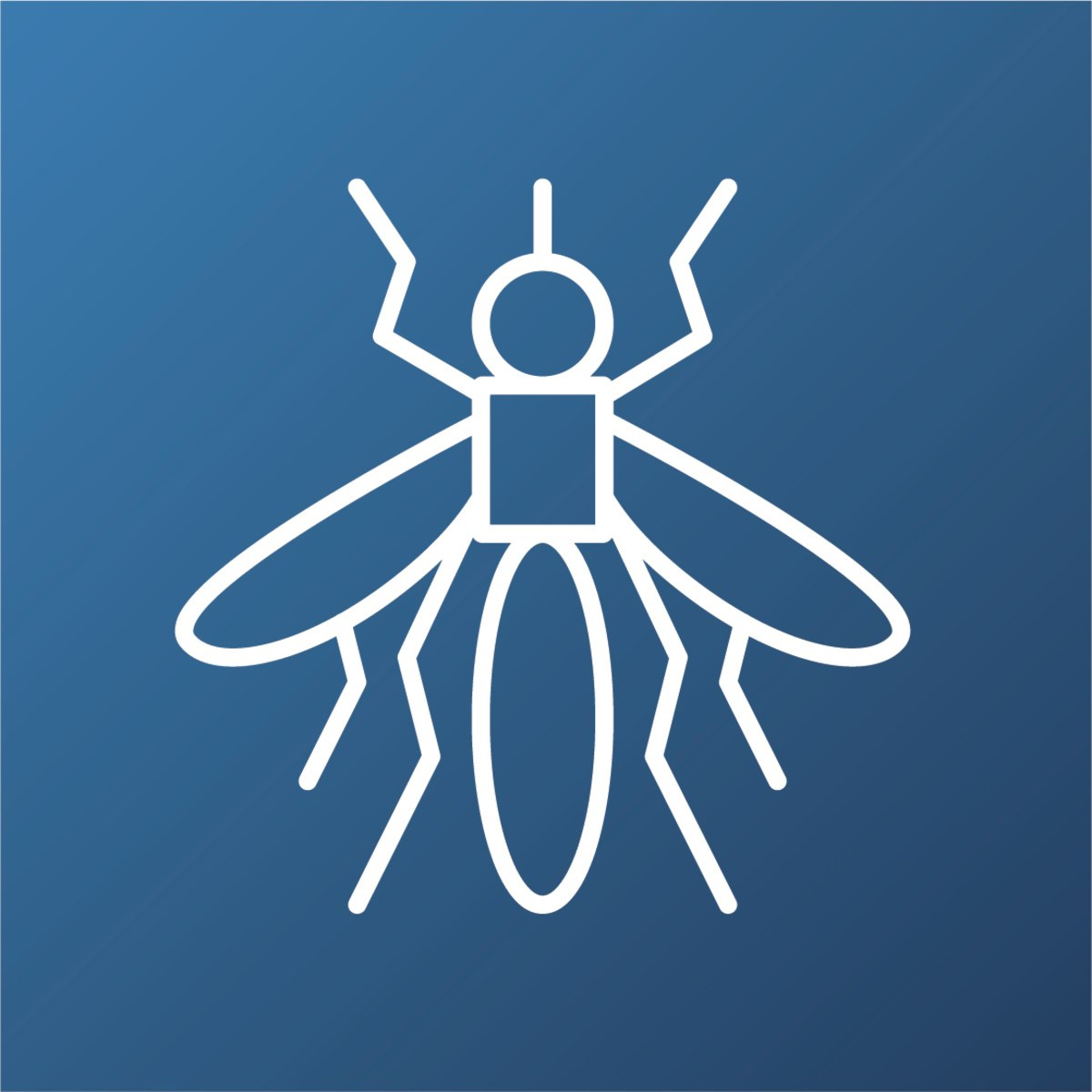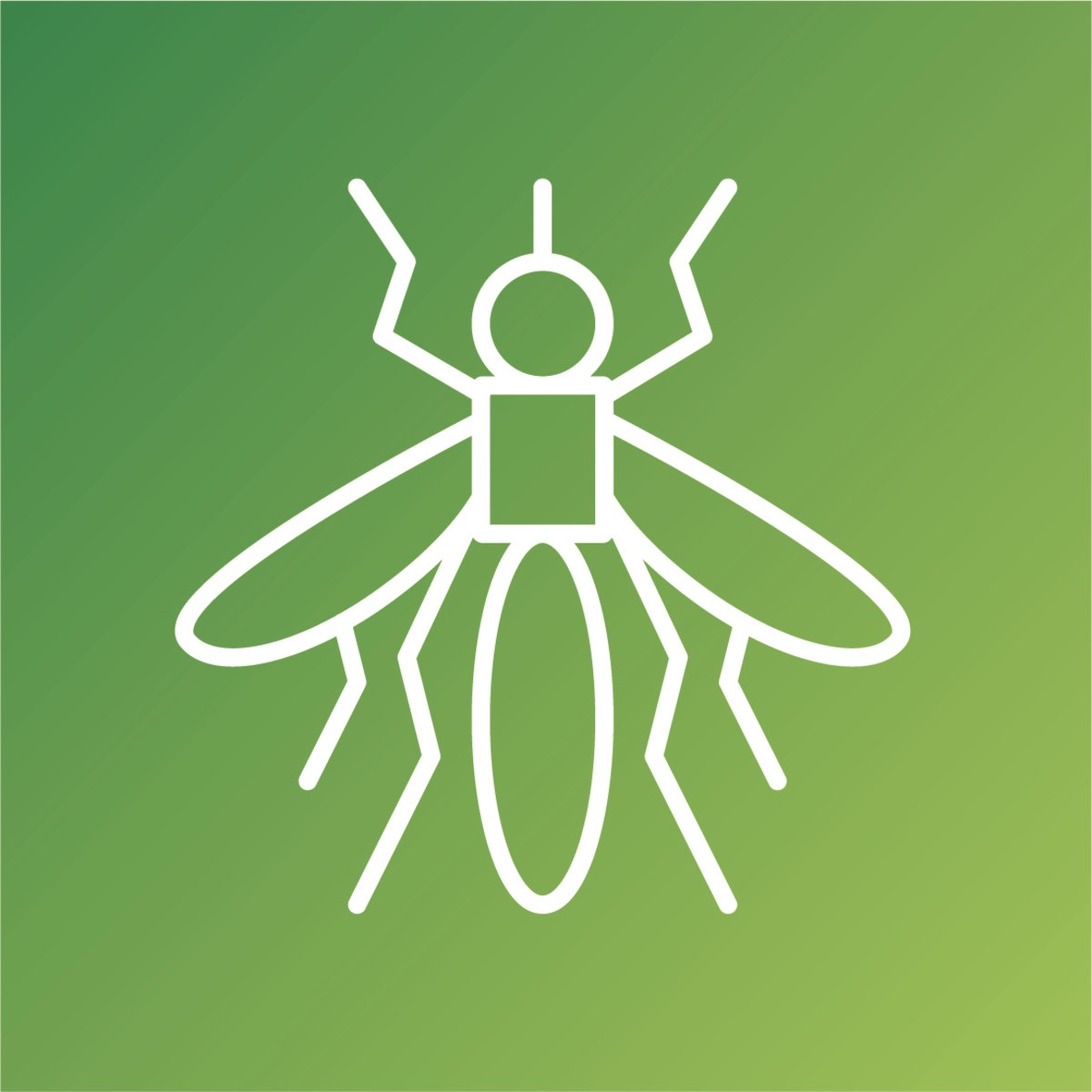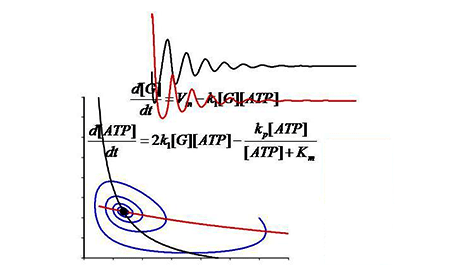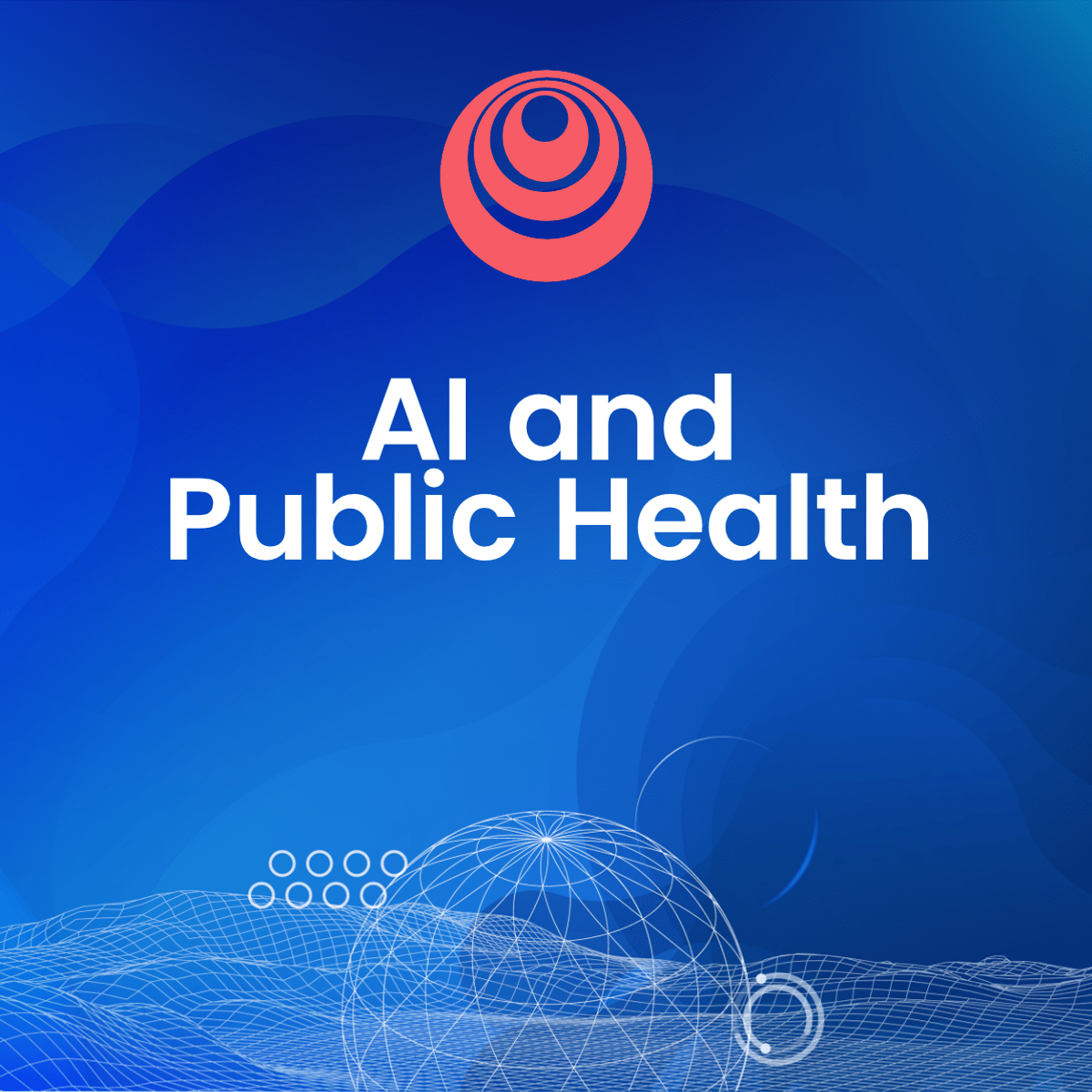Public Health Scientist
A Comprehensive Guide to a Career as a Public Health Scientist
Public health science is a dynamic and vital field dedicated to protecting and improving the health of entire populations. It encompasses a wide range of activities, from tracking disease outbreaks and researching environmental hazards to developing health policies and promoting healthy behaviors. At its core, public health science seeks to prevent illness, prolong life, and enhance well-being through organized community efforts. This field is inherently interdisciplinary, drawing on expertise from medicine, epidemiology, biostatistics, social sciences, and environmental health, among others. For individuals passionate about making a broad impact, a career as a public health scientist offers the opportunity to contribute to the well-being of communities at local, national, and even global levels.
Working as a public health scientist can be incredibly engaging and exciting. You might find yourself at the forefront of investigating emerging health threats, designing interventions to combat chronic diseases, or working with communities to address health disparities. The work often involves a blend of rigorous scientific inquiry, data analysis, and collaborative problem-solving, ensuring that no two days are exactly alike. The ability to translate complex data into actionable insights and policies that can tangibly improve lives provides a profound sense of purpose and accomplishment.
Introduction to Public Health Science
This section will lay the groundwork for understanding what public health science entails, its historical roots, and its overarching goals. It’s designed for a general audience, including students who might be exploring this impactful career path.
Defining the Realm: What is Public Health Science?
Public health science is the discipline concerned with safeguarding and enhancing the health of people and their communities. This work is achieved through promoting healthy lifestyles, researching disease and injury prevention, and detecting, preventing, and responding to infectious diseases. Unlike clinical professionals who primarily focus on treating individuals after they become sick or injured, public health scientists concentrate on the health of populations, aiming to prevent problems from occurring or recurring through educational programs, policy development, and research.
The scope of public health science is vast. It includes a wide array of specializations such as epidemiology (the study of disease patterns), biostatistics (the application of statistics to biological and health data), environmental health (addressing environmental risk factors), health policy and management (developing and implementing health strategies), and social and behavioral sciences (understanding how human behavior impacts health). Professionals in this field work in diverse settings, including government agencies, academic institutions, research organizations, and non-profit entities.
Ultimately, the goal of public health science is to create conditions in which people can be healthy. This involves understanding the determinants of health, which can range from genetic predispositions to social and economic factors, and then developing interventions that address these determinants to improve health outcomes for all. It's a field driven by science, evidence, and a commitment to equity.
These courses provide a foundational understanding of public health principles and methodologies, suitable for those beginning to explore this field.
A Journey Through Time: The Evolution of Public Health
The roots of public health stretch back to ancient civilizations, which recognized the importance of sanitation and hygiene for community well-being. For instance, ancient Egyptians recorded diseases and remedies, linking cleanliness to health, while Romans engineered aqueducts and sewage systems. Hippocrates, in ancient Greece, theorized that environmental factors influenced disease patterns, laying early groundwork for epidemiology.
The Middle Ages saw rudimentary quarantine measures during plagues, though public health was often intertwined with religious institutions. A significant turning point was "the great sanitary awakening" in the 19th century, where filth was identified as a cause and transmitter of disease, leading to major social and sanitation reforms. The development of bacteriology and immunology in the late 19th and early 20th centuries, with figures like Louis Pasteur and Robert Koch proving the germ theory of disease, provided a strong scientific basis for public health interventions.
The 20th century marked a period of unprecedented progress, with the establishment of public health institutions, large-scale government initiatives, the development of vaccines and antibiotics, and the rise of epidemiological tracking. International collaborations and organizations like the World Health Organization (WHO) became crucial in addressing global health issues. Today, public health continues to evolve, tackling new challenges like chronic diseases, emerging infections, health disparities, and the health impacts of climate change, armed with advanced data analytics and a deeper understanding of the social determinants of health.
To delve deeper into the historical context and foundational concepts, these books offer comprehensive insights.
The Guiding Stars: Core Objectives of Public Health Work
Public health initiatives are fundamentally aimed at preventing disease, promoting health, and prolonging life within communities. A primary objective is the prevention and control of diseases, which involves everything from vaccination programs and health screenings to surveillance systems that track outbreaks and identify risk factors. This includes not only infectious diseases but also the growing burden of chronic non-communicable diseases like heart disease, cancer, and diabetes.
Another core objective is health promotion, which focuses on enabling people to increase control over and improve their health. This often involves health education campaigns to inform the public about healthy behaviors, advocating for policies that make healthy choices easier (like smoke-free environments or accessible nutritious food), and addressing the social determinants of health that create barriers to well-being. Ensuring health equity—meaning everyone has a fair and just opportunity to be as healthy as possible—is a critical underpinning of all public health objectives.
Furthermore, public health seeks to protect communities from environmental hazards, ensure the safety of food and water, and prepare for and respond to public health emergencies, such as natural disasters or pandemics. This involves research to understand threats, developing preparedness plans, and coordinating response efforts. The Centers for Disease Control and Prevention (CDC) outlines key strategies such as making physical activity accessible, ensuring healthy food choices, and strengthening obesity prevention. Ultimately, the collective aim is to create a healthier society for everyone.
These courses offer insight into the strategies and objectives that drive public health actions.
Core Responsibilities of Public Health Scientists
This section details the typical duties and societal contributions of public health scientists, aimed at those considering a career switch or currently in graduate studies related to the field. It will provide a clearer picture of what the day-to-day work might involve.
Guarding the Gates: Strategies for Disease Prevention
A fundamental responsibility of public health scientists is the development and implementation of strategies to prevent disease. This involves a multi-faceted approach, beginning with identifying populations at risk and the factors that contribute to their vulnerability. Scientists utilize epidemiological methods to study disease distribution and determinants, informing the design of targeted interventions. These interventions can range from promoting vaccinations and healthy lifestyles to implementing screening programs for early disease detection.
Public health scientists also play a crucial role in controlling infectious disease outbreaks. This includes surveillance activities to monitor disease trends, investigating outbreaks to identify sources and modes of transmission, and implementing control measures such as contact tracing and quarantine protocols. For chronic diseases, prevention strategies might focus on modifying risk factors like tobacco use, poor diet, and physical inactivity through educational campaigns, policy changes, and community-based programs.
The work extends to ensuring the safety of the environment, food, and water supplies to prevent illness. This might involve research into the health effects of pollutants, advocating for regulations to reduce exposure to harmful substances, and developing systems to monitor and ensure food and water quality. The overarching goal is to create conditions that support health and prevent illness before it occurs, reducing the burden on individuals and healthcare systems.
Understanding how diseases spread and can be controlled is paramount. These courses cover essential tools and study designs in epidemiology.
These books offer in-depth knowledge of epidemiological principles and practices.
Shaping Health's Future: Policy Analysis and Development
Public health scientists are deeply involved in the analysis and development of health policies. Their research provides the evidence base needed to inform policy decisions aimed at improving population health. This involves evaluating the potential health impacts of existing and proposed policies, identifying gaps in current policy, and advocating for changes that promote health and reduce inequities. For example, a scientist might analyze data on the impact of sugar-sweetened beverage taxes on obesity rates or study the effectiveness of clean air regulations in reducing respiratory illnesses.
The process of policy development often requires collaboration with policymakers, community stakeholders, and other experts. Public health scientists may be called upon to present their findings to legislative bodies, participate in advisory committees, or work directly with government agencies to draft new regulations or guidelines. Effective communication skills are crucial for translating complex scientific information into clear, concise recommendations that policymakers can understand and act upon.
Furthermore, policy analysis extends to assessing how policies are implemented and their real-world impact. This includes monitoring compliance, evaluating outcomes, and identifying unintended consequences. The goal is to ensure that policies are not only evidence-based but also effectively implemented and achieving their intended public health objectives, contributing to a healthier and more equitable society.
These courses touch upon policy development and advocacy within the public health context.
Understanding Communities: Techniques for Health Assessment
Community health assessment is a vital function of public health scientists, involving the systematic collection, analysis, and interpretation of health-related data to understand the health status, needs, and resources of a specific population. This process helps identify key health problems, vulnerable groups, and the social, economic, and environmental factors that influence health within a community. Techniques used can include analyzing existing data sources like vital statistics, hospital records, and disease registries, as well as conducting surveys, interviews, and focus groups to gather firsthand information from community members.
The data gathered through community health assessments serves several critical purposes. It provides a baseline for setting health priorities, developing targeted interventions, and allocating resources effectively. For example, an assessment might reveal high rates of asthma in a particular neighborhood, leading to further investigation of local air quality and the development of programs to reduce exposure to triggers. It also allows public health agencies to monitor trends in health status over time and evaluate the impact of public health programs.
Engaging the community in the assessment process is a key principle. This ensures that the assessment reflects the community's perspectives and priorities, fosters a sense of ownership, and builds partnerships for future health improvement efforts. Ultimately, community health assessments provide the foundation for evidence-based public health practice, enabling scientists and practitioners to tailor their efforts to meet the unique needs of the populations they serve.
Courses that focus on community engagement and assessment are valuable for this aspect of public health work.
Educational Pathways to Public Health Science
For those aspiring to enter the field, understanding the educational journey is crucial. This section outlines typical academic routes, from undergraduate studies to specialized graduate programs, and is particularly relevant for students and career changers.
Laying the Groundwork: Undergraduate Degree Options
A bachelor's degree is typically the first step towards a career as a public health scientist. While some universities offer specific Bachelor of Science in Public Health (BSPH) degrees, many other undergraduate majors can provide a strong foundation. Relevant fields include biology, chemistry, statistics, sociology, psychology, environmental science, or health sciences. Coursework in these areas helps develop critical thinking, analytical skills, and a basic understanding of scientific principles and research methods.
Regardless of the specific major, it is beneficial to take courses related to public health, epidemiology, biostatistics, and health policy if available. Gaining research experience through internships, volunteer work, or assisting faculty with projects can also be invaluable. These experiences not only strengthen an application for graduate school but also provide a practical understanding of the field. Strong communication and quantitative skills are also essential and can be honed through various undergraduate courses and activities.
For individuals considering a career change into public health science, their existing bachelor's degree, coupled with relevant work experience or prerequisite courses, can often serve as a sufficient foundation for pursuing graduate studies in public health. Online courses on platforms like OpenCourser can be an excellent way to explore foundational public health topics, gain prerequisite knowledge, or supplement an existing degree before committing to a graduate program. These resources allow learners to study at their own pace and can demonstrate initiative and commitment to the field.
This general public health course can serve as a good starting point at the undergraduate level or for those exploring the field.
Advancing Your Knowledge: Graduate Programs and Specializations
For most research and leadership positions in public health science, a graduate degree is essential. The Master of Public Health (MPH) is a common and versatile degree, offering specializations in areas like epidemiology, biostatistics, environmental health sciences, health policy and management, and social and behavioral sciences. An MPH program typically combines coursework with practical experience, often through an internship or capstone project, providing students with both theoretical knowledge and real-world skills.
Other relevant master's degrees include the Master of Science (MS) in a specific area like epidemiology or biostatistics, which may be more research-focused than an MPH. For those interested in advanced research careers or academic positions, a doctoral degree, such as a Doctor of Philosophy (PhD) in a public health discipline or a Doctor of Public Health (DrPH), is usually required. These programs involve extensive coursework, comprehensive exams, and the completion of a dissertation based on original research.
Online learning continues to expand access to graduate-level public health education. Many reputable universities now offer online MPH and other related degrees, providing flexibility for working professionals or those with geographical constraints. These programs often utilize the same rigorous curriculum and experienced faculty as their on-campus counterparts. When choosing a graduate program, consider factors such as accreditation (e.g., by the Council on Education for Public Health - CEPH), faculty expertise, research opportunities, and alignment with your career goals.
These courses are representative of the specialized knowledge gained in graduate-level public health programs, particularly in epidemiology and biostatistics.
These books are standard texts in many public health graduate programs, offering deep dives into statistical methods and epidemiological research.
The Apex of Study: Research Opportunities in Doctoral Studies
Doctoral studies, typically leading to a PhD or DrPH, represent the highest level of academic preparation for a public health scientist and are centered around conducting original research. PhD programs generally emphasize the development of research skills and expertise in a specific methodological or substantive area, preparing graduates for careers as independent researchers and academics. The DrPH is often geared towards leadership roles in public health practice, focusing on applying research to solve complex public health problems and lead public health organizations.
A significant component of doctoral education is the dissertation, which requires students to design and execute a substantial research project, analyze the findings, and present them in a scholarly manuscript. This process allows students to make a novel contribution to the field and demonstrate their capacity for independent research. Throughout their doctoral studies, students work closely with faculty mentors, collaborate on research projects, publish in peer-reviewed journals, and present their work at scientific conferences.
Research opportunities in doctoral programs span the entire spectrum of public health. Students might investigate the molecular mechanisms of disease, develop new statistical models for analyzing health data, evaluate the effectiveness of large-scale health interventions, or explore the ethical implications of emerging health technologies. These programs equip graduates with the advanced skills and knowledge necessary to lead cutting-edge research, teach at the university level, and hold high-level positions in government, non-profit organizations, and private industry. Many universities offer research practicums, sometimes even internationally, allowing students to gain diverse experiences.
Advanced courses focusing on specific modeling techniques and research methodologies are key in doctoral programs.
For advanced research, comprehensive texts on statistical modeling and disease transmission are indispensable.
Essential Skills for Public Health Scientists
Success in public health science hinges on a diverse set of skills. This section highlights the critical competencies that job seekers and early-career professionals should aim to develop, from analytical prowess to communication finesse.
Making Sense of Numbers: Data Analysis and Biostatistics
A core competency for public health scientists is the ability to analyze and interpret complex health data. This involves a strong understanding of biostatistics, the branch of statistics applied to biological and health-related fields. Public health scientists use biostatistical methods to design studies, describe population health characteristics, identify risk factors for disease, and evaluate the effectiveness of interventions. This can include anything from calculating disease prevalence and incidence rates to performing sophisticated regression analyses to understand the relationships between various factors and health outcomes.
Proficiency in statistical software packages such as R, SAS, SPSS, or Stata is often required. Scientists must be adept at managing large datasets, ensuring data quality, performing appropriate statistical tests, and visualizing data in meaningful ways. Beyond the technical aspects, a crucial skill is the ability to critically appraise statistical information and draw valid conclusions, as well as to communicate findings clearly to both technical and non-technical audiences.
The insights gained from data analysis and biostatistics are fundamental to evidence-based public health practice. They inform everything from resource allocation and program planning to policy development and outbreak investigations. As the volume and complexity of health data continue to grow, these analytical skills will only become more critical for public health scientists.
Developing strong skills in biostatistics and data analysis is crucial. These courses offer practical training in these areas, often using software like R.
These books provide a solid grounding in statistical learning and its applications, essential for data analysis in public health.
Tracing the Pathways: Epidemiological Methods
Epidemiology is often described as the cornerstone of public health, and a strong grasp of epidemiological methods is essential for public health scientists. This involves understanding how to design and conduct various types of epidemiological studies, including observational studies (like cohort, case-control, and cross-sectional studies) and experimental studies (like randomized controlled trials). Each study design has its strengths and limitations, and scientists must be able to select the most appropriate design to answer specific research questions.
Key epidemiological skills include defining and measuring health outcomes and exposures, calculating measures of disease frequency (e.g., incidence, prevalence) and association (e.g., relative risk, odds ratio), and identifying and controlling for bias and confounding. Public health scientists use these methods to investigate the causes of diseases, identify populations at high risk, monitor disease trends over time, and evaluate the impact of public health interventions and programs.
During disease outbreaks, epidemiologists are on the front lines, working to identify the source of the infection, understand how it is spreading, and implement measures to control it. Beyond infectious diseases, epidemiological methods are also applied to study chronic diseases, injuries, environmental health issues, and social determinants of health. The ability to think critically about causal relationships and interpret epidemiological evidence is paramount.
These courses focus on the core principles and practical applications of epidemiology.
For those seeking to deepen their understanding of epidemiology, these books are highly recommended.
Bridging Divides: Cross-Cultural Communication Proficiency
Effective communication is a vital skill for public health scientists, and this increasingly includes the ability to communicate across diverse cultural backgrounds. Public health issues often impact varied populations with different beliefs, values, languages, and health practices. To successfully design and implement public health interventions, scientists must be able to engage with these communities in a culturally sensitive and respectful manner.
Cross-cultural communication involves more than just language translation. It requires an understanding of cultural norms, an awareness of potential biases (both personal and systemic), and the ability to adapt communication styles to different audiences. This is crucial when conducting community health assessments, developing health education materials, or working with community leaders to promote health initiatives. Building trust and rapport with diverse communities is essential for the success of public health efforts.
In an increasingly globalized world, public health scientists may also work on international projects or collaborate with colleagues from different countries. This necessitates an appreciation for cultural differences in approaches to health, research ethics, and policy-making. Strong cross-cultural communication skills help to foster effective partnerships, ensure that interventions are culturally appropriate and sustainable, and ultimately lead to better health outcomes for all populations.
Courses that focus on communication strategies, particularly in diverse or crisis contexts, are beneficial.
This book specifically addresses communication in the public health field.
Career Progression in Public Health Science
The path of a public health scientist can lead in many directions. This section explores typical career trajectories, from initial roles to senior leadership positions, offering insights for those planning their professional growth.
Starting the Journey: Entry-Level Roles and Internships
Entry into the field of public health science often begins with roles such as research assistant, data analyst, program coordinator, or public health intern, particularly for those with a bachelor's degree. These positions provide invaluable hands-on experience in collecting and managing data, assisting with research studies, supporting the implementation of public health programs, and learning the day-to-day operations of public health organizations. Internships, whether during undergraduate or graduate studies, are particularly crucial for gaining practical skills and making professional connections.
Individuals with a Master of Public Health (MPH) or a similar master's degree are often eligible for a broader range of entry-level and mid-level positions. These might include roles like epidemiologist, biostatistician, health educator, policy analyst, or environmental health specialist within government agencies (local, state, or federal), non-profit organizations, hospitals, or research institutions. These roles typically involve more responsibility in designing studies, analyzing data, developing programs, or contributing to policy development.
Building a strong foundation in quantitative skills, research methods, and a specific area of public health (e.g., infectious diseases, chronic diseases, maternal and child health) is key at this stage. Networking, seeking mentorship, and staying updated on current public health issues and methodologies are also important for career advancement. Many professionals use OpenCourser's Learner's Guide to find resources on how to structure their self-learning and make the most of online educational opportunities to fill any skill gaps.
These courses can provide foundational knowledge relevant for entry-level roles and internships, covering basics of epidemiology and public health practice.
Leading the Charge: Mid-Career Leadership Opportunities
As public health scientists gain experience and expertise, typically after several years in the field and often with an advanced degree (MPH, MS, or PhD), opportunities for leadership roles emerge. These can include positions such as senior epidemiologist, principal investigator on research projects, program manager, director of a public health division, or senior policy advisor. Mid-career professionals are expected to take on greater responsibility for designing and overseeing research, managing teams, securing funding, developing and evaluating complex public health programs, and influencing policy decisions.
Strong leadership and management skills become increasingly important at this stage. This includes the ability to mentor junior staff, manage budgets and resources, build and maintain partnerships with other organizations and community groups, and communicate effectively with diverse stakeholders, including policymakers and the public. Many public health professionals in mid-career roles are also involved in teaching or training the next generation of public health practitioners.
Continuing professional development is crucial for staying current with scientific advancements, emerging health threats, and evolving best practices in public health. This might involve attending conferences, publishing research, taking advanced courses, or obtaining specialized certifications. Mid-career leadership roles offer the chance to make a significant impact on public health by shaping research agendas, guiding public health programs, and contributing to evidence-based policy at a broader level.
These courses address leadership and program management skills pertinent to mid-career public health professionals.
These books are valuable for those in or aspiring to leadership roles in public health.
Advising at the Top: Senior Policy and Research Roles
With extensive experience, a strong track record of research or program leadership, and often a doctoral degree (PhD or DrPH), public health scientists can advance to senior policy advisor or high-level research positions. These roles typically involve shaping national or international health policy, directing large-scale research programs, leading public health agencies or major departments within them, or holding senior academic positions such as full professor or dean. Examples include serving as a chief epidemiologist for a national health agency, directing a major research center at a university, or advising government leaders on public health strategy.
In these senior roles, individuals are responsible for setting strategic priorities, securing substantial funding, translating complex research findings into impactful policy, and representing their organizations at national and international forums. They often play a key role in mentoring the next generation of public health leaders and shaping the future direction of the field. A deep understanding of the political, social, and economic contexts of public health is essential, as is the ability to navigate complex organizational and political landscapes.
Senior public health scientists often have a significant publication record, a national or international reputation in their area of expertise, and extensive experience in collaborating with diverse stakeholders. Their work can influence the health of millions by guiding the development of evidence-based policies and programs that address critical public health challenges. These positions demand a high level of expertise, strategic thinking, and leadership.
While specific courses for such senior roles are less common as they rely heavily on experience, understanding advanced research and policy implications is key.
This book covers high-level public health administration.
Global Health Challenges Addressed by Public Health Scientists
Public health science is not confined by borders. This section explores how professionals in this field contribute to tackling worldwide health issues, a topic of interest for those with an international focus.
Confronting Outbreaks: Pandemic Response Systems
Public health scientists are at the heart of global efforts to prepare for, detect, and respond to pandemics. Their expertise in epidemiology, disease surveillance, and outbreak investigation is critical for identifying emerging infectious disease threats and understanding their potential to spread across borders. This involves developing and maintaining robust surveillance systems that can quickly detect unusual patterns of illness, as well as laboratory capacity to identify novel pathogens.
During a pandemic, public health scientists play numerous roles. They conduct rapid research to understand the characteristics of the new pathogen, including its transmissibility, severity, and risk factors for severe outcomes. They develop mathematical models to predict the spread of the disease and the potential impact of different control measures. They also advise governments and international organizations like the WHO on strategies for containment and mitigation, such as travel restrictions, quarantine measures, social distancing, and vaccination campaigns.
Furthermore, public health scientists are involved in developing and evaluating new vaccines and treatments, as well as strategies for ensuring their equitable distribution globally. They also work on public health communication to provide accurate information to the public and counter misinformation. The COVID-19 pandemic highlighted the indispensable role of public health scientists in navigating global health crises and the ongoing need to strengthen pandemic preparedness and response systems worldwide.
Understanding epidemic dynamics and response is crucial in this area.
This book deals directly with public health responses to epidemics.
Striving for Fairness: Health Equity Initiatives
A major global challenge that public health scientists address is health inequity—the systematic, avoidable, and unjust differences in health status observed between different population groups. These disparities can be based on socioeconomic status, race or ethnicity, gender, geographic location, sexual orientation, or other social determinants of health. Public health scientists work to identify and understand the root causes of these inequities, which often lie in social, economic, and political structures.
Their research involves collecting and analyzing data to highlight health disparities, examining how factors like poverty, discrimination, lack of education, and limited access to healthcare contribute to unequal health outcomes. Based on this evidence, scientists help design and advocate for interventions and policies aimed at reducing these inequities. This might include programs that improve access to healthcare for underserved populations, policies that address social determinants like housing or food security, or community-based initiatives that empower marginalized groups.
Promoting health equity requires a multi-sectoral approach and a commitment to social justice. Public health scientists often collaborate with community organizations, policymakers, and advocates to build coalitions and drive change. The ultimate goal is to create a society where everyone has the opportunity to achieve their full health potential, regardless of their background or circumstances. This is a central tenet of modern public health and a key focus of global health efforts.
Courses that explore social determinants of health and community-based approaches are relevant here.
This book specifically addresses health inequities through public health practice.
Our Planet, Our Health: Environmental Health Interventions
Environmental factors play a significant role in human health, and public health scientists are crucial in identifying and mitigating environmental health risks. This broad area includes addressing the impacts of air and water pollution, exposure to hazardous waste and toxic substances, climate change, and unsafe housing or working conditions. Scientists conduct research to understand how these environmental exposures affect health, identify vulnerable populations, and develop strategies for prevention and control.
Interventions in environmental health can take many forms. Public health scientists may advocate for and help develop regulations to limit pollution from industrial sources, improve water treatment processes, or ensure safe disposal of hazardous materials. They might design programs to reduce lead exposure in older homes, promote safe agricultural practices, or monitor air quality to provide public health advisories. They also play a role in disaster preparedness and response, particularly for events with significant environmental health consequences, such as chemical spills or natural disasters exacerbated by climate change.
As global environmental challenges like climate change intensify, the role of public health scientists in this area is becoming even more critical. They are involved in assessing the health impacts of rising temperatures, extreme weather events, and changes in disease vector patterns, and in developing adaptation and mitigation strategies to protect public health. This often involves interdisciplinary collaboration with environmental scientists, urban planners, engineers, and policymakers.
These courses provide insights into the intersection of environment and public health.
Ethical Considerations in Public Health
The practice of public health is laden with ethical complexities. This section delves into some of the moral dilemmas faced by professionals in the field, which is important for policymakers and those serving on ethics committees to understand.
Balancing Individual Liberty and Collective Well-being: Vaccination Policy Ethics
Vaccination policies often present a classic ethical tension in public health: the balance between individual autonomy and the collective good of protecting community health. While vaccines are a cornerstone of infectious disease prevention and rely on high uptake to achieve herd immunity, some individuals may object to vaccination based on personal beliefs, religious views, or concerns about vaccine safety (often fueled by misinformation). Public health scientists contribute by providing evidence on vaccine efficacy and safety, and the population-level benefits of high immunization rates.
Ethical debates around vaccination policies involve questions about mandatory vaccination for school entry or certain occupations, the extent to which exemptions should be granted, and how to address vaccine hesitancy respectfully and effectively. Public health ethicists and scientists grapple with justifying policies that might infringe on individual liberty for the sake of preventing harm to others, especially vulnerable populations who cannot be vaccinated or for whom vaccines are less effective. The principle of beneficence (doing good) and non-maleficence (doing no harm) are central to these discussions.
Transparency in decision-making, clear communication about the risks and benefits of vaccines, and engagement with communities to understand and address their concerns are crucial components of ethically sound vaccination policies. Public health scientists play a role in all these aspects, striving to build public trust and ensure that policies are based on the best available evidence and ethical considerations.
This course touches upon interventions which can include vaccination strategies and their modeling.
These books delve into ethical considerations in public health, which would encompass topics like vaccination policies.
The Sanctity of Information: Health Data Privacy Concerns
Public health relies heavily on the collection, analysis, and use of health data to monitor disease trends, identify risk factors, and evaluate interventions. However, the use of this data raises significant ethical concerns related to privacy and confidentiality. Health information is often highly personal and sensitive, and individuals have a right to expect that their data will be protected from unauthorized access, use, or disclosure.
Public health scientists and institutions must navigate a complex web of legal and ethical obligations to ensure that data is used responsibly. This includes implementing robust data security measures, anonymizing or de-identifying data whenever possible, and obtaining informed consent for data collection when appropriate. There can be ethical tensions when the need for comprehensive data for public health surveillance or research conflicts with individual privacy rights, particularly in situations like outbreak investigations or studies involving vulnerable populations.
The advent of big data, digital health records, and new technologies like AI and digital contact tracing further complicates these privacy concerns. Public health scientists must be at the forefront of developing ethical guidelines and best practices for the use of these technologies, ensuring that the benefits to public health are weighed carefully against potential privacy risks. Building and maintaining public trust in how health data is handled is paramount for the continued success of public health initiatives.
While not directly about privacy, understanding how data is used and analyzed, as in these courses, is foundational to appreciating privacy concerns.
This book discusses public health informatics, a field where data privacy is a major consideration.
Weighing Needs and Means: Dilemmas in Resource Allocation
Resource allocation is one of the most persistent and challenging ethical dilemmas in public health. Public health resources—including funding, personnel, vaccines, medications, and equipment—are almost always finite, while the health needs of a population can be vast. Public health scientists and policymakers must make difficult decisions about how to distribute these limited resources in a way that is fair, equitable, and maximizes health benefits for the population.
Ethical considerations in resource allocation involve questions of justice and fairness. Should resources be prioritized for the sickest, for those who would benefit most, for underserved populations to reduce health disparities, or to achieve the greatest good for the greatest number? Different ethical frameworks (e.g., utilitarianism, egalitarianism, prioritarianism) may lead to different conclusions. Public health scientists contribute by providing data on the burden of disease, the effectiveness and cost-effectiveness of different interventions, and the potential impact of allocation decisions on health equity.
Transparency, public engagement, and clear criteria for decision-making are essential for navigating these dilemmas ethically. During public health emergencies, such as pandemics, resource allocation challenges can become particularly acute, for example, when deciding who gets priority for scarce ventilators or vaccines. These decisions have profound ethical implications and require careful deliberation, guided by evidence and ethical principles.
This course, while broad, touches on elements that inform resource allocation decisions.
This book explores ethical issues, including the distribution of health resources.
Technological Advancements in the Field
Technology is rapidly transforming public health. This section examines how new tools and techniques are shaping modern practices, a key area for tech professionals and researchers in public health.
Predicting the Future: AI in Disease Modeling
Artificial intelligence (AI) is increasingly being used in public health to enhance disease modeling and prediction. AI algorithms can analyze vast amounts of complex data—including epidemiological data, genomic sequences, environmental factors, and even social media trends—to identify patterns and predict disease outbreaks with greater speed and accuracy than traditional methods. This allows public health officials to anticipate potential health threats and implement preventive measures more proactively.
For example, machine learning models can be trained to detect early warning signs of an impending flu season or to identify geographic hotspots for vector-borne diseases like Zika or Dengue fever based on climate data and mosquito surveillance. During a pandemic, AI can help model the spread of a novel pathogen, assess the potential impact of different interventions (such as school closures or travel restrictions), and optimize resource allocation for testing and treatment.
While AI offers powerful new tools for public health scientists, its use also raises ethical considerations related to data privacy, algorithmic bias, and the need for transparency and interpretability in AI models. Ensuring that AI is used responsibly and equitably to benefit all populations is a key challenge as this technology becomes more integrated into public health practice. You can explore various AI courses on OpenCourser to understand the fundamentals and applications of this technology.
These courses introduce the application of AI in health contexts, which is foundational for understanding its role in disease modeling.
These books discuss machine learning and deep learning, which are core AI technologies used in disease modeling.
The Digital Pulse: Innovations in Epidemiological Tools
Digital technologies are revolutionizing epidemiological methods and public health surveillance. Mobile phones, wearable sensors, social media, and web-based platforms provide new avenues for collecting real-time health data, tracking disease symptoms, and monitoring health behaviors at a population level. These "digital epidemiology" tools can complement traditional surveillance systems by providing more timely and granular information, particularly during rapidly evolving health crises.
For instance, anonymized data from mobile phone location services can help understand population movement patterns and assess the effectiveness of social distancing measures during an outbreak. Apps that allow individuals to self-report symptoms can provide early indicators of community transmission. Social media listening tools can detect spikes in discussions about specific symptoms or diseases, potentially signaling an emerging public health concern even before official reports are available. The CDC has also updated its strategy to improve data exchange and expand core data sources, including wastewater surveillance.
While these digital tools offer immense potential, they also bring challenges. Ensuring data privacy and security, addressing the digital divide (inequitable access to technology), validating the accuracy of digitally collected data, and integrating this information into existing public health workflows are all important considerations. Public health scientists are working to develop best practices and ethical frameworks for leveraging these innovative tools to enhance disease surveillance and response.
Courses focusing on health informatics and the application of technology in public health are relevant here.
Securing Health Data: Blockchain for Health Records
Blockchain technology, best known for its use in cryptocurrencies, is emerging as a potential tool for enhancing the security, privacy, and interoperability of health records. A blockchain is a decentralized, distributed, and immutable ledger that can securely record transactions or data. In the context of health records, it could provide a way for patients to have more control over their health information, granting access to different providers as needed while maintaining a secure and auditable trail of who has accessed their data and when.
One of the key potential benefits of blockchain in healthcare is improved interoperability. Health information is often siloed in different electronic health record (EHR) systems used by various hospitals and clinics, making it difficult to share patient data seamlessly. Blockchain could provide a standardized and secure way to link these disparate systems, ensuring that clinicians have access to a complete patient history, which can lead to better diagnoses and treatment decisions. It could also facilitate more efficient and secure data sharing for public health research, with appropriate patient consent.
However, the application of blockchain in healthcare is still in its early stages, and there are challenges to address. These include scalability, the complexity of implementation, the need for industry-wide standards, and ensuring compliance with existing health data privacy regulations like HIPAA. Public health scientists and informaticians are exploring the potential of blockchain to address some of the long-standing challenges in managing and sharing health data securely and efficiently.
While specific courses on blockchain for health records are niche, understanding data management and health informatics is a prerequisite. This book touches upon the broader scope of informatics and technology in healthcare.
Career Alternatives and Related Fields
A background in public health science opens doors to various related careers. This section is for those exploring different pathways or considering a pivot, including career counselors and students weighing their options.
Moving into Management: Transitioning to Health Administration
Public health scientists with strong leadership, organizational, and analytical skills may find rewarding career paths in health administration. Healthcare administrators are responsible for planning, directing, and coordinating medical and health services. They might manage an entire facility, a specific clinical area or department, or a medical practice for a group of physicians. This role involves overseeing operations, managing finances and budgets, ensuring compliance with regulations, and working to improve the efficiency and quality of healthcare delivery.
The skills developed as a public health scientist—such as data analysis, program evaluation, understanding of health systems, and policy analysis—are highly transferable to health administration. For instance, an epidemiologist's understanding of disease patterns and risk factors can inform a hospital's strategic planning for service delivery. A public health program manager's experience in budgeting and team leadership is directly applicable to administrative roles. Many professionals pursue a Master of Health Administration (MHA) or an MPH with a concentration in health management to further develop these skills.
Transitioning into health administration can offer opportunities to impact health at an organizational level, working to ensure that healthcare systems are effective, efficient, and responsive to the needs of the communities they serve. This path often appeals to those who enjoy the managerial and operational aspects of healthcare, in addition to the scientific and analytical components of public health.
Courses focusing on health systems and administration provide a good foundation for this transition.
A Global Impact: Opportunities in International Health NGOs
For public health scientists passionate about global health equity and addressing health challenges in low- and middle-income countries, careers with international non-governmental organizations (NGOs) offer impactful opportunities. Organizations like Doctors Without Borders, Partners In Health, CARE, and many others rely on public health expertise to design, implement, and evaluate health programs in diverse settings around the world.
Roles within global health NGOs can vary widely, from field epidemiologists responding to outbreaks in remote areas, to program managers overseeing maternal and child health initiatives, to researchers evaluating the effectiveness of interventions for diseases like malaria, tuberculosis, or HIV/AIDS. These positions often require adaptability, cross-cultural communication skills, and a willingness to work in challenging environments. A strong understanding of the social, economic, and political determinants of health in different cultural contexts is essential.
Many public health scientists working in this sector have an MPH or a doctoral degree with a focus on global health. Experience working or volunteering in international settings is also highly valued. While demanding, a career with a global health NGO can be incredibly rewarding, offering the chance to contribute directly to improving the health and well-being of some of the world's most vulnerable populations. You can explore courses related to international studies to broaden your understanding of global contexts.
These courses are pertinent to understanding and working in global health and humanitarian contexts.
This comprehensive textbook covers global public health issues.
Lab Coats to Laptops: Research vs. Applied Practice Paths
Within public health science, career paths can broadly be categorized into research-focused roles and applied practice roles, though there is often considerable overlap. Research-focused careers typically involve designing and conducting studies to generate new knowledge about health and disease. This might include laboratory-based research to understand disease mechanisms, epidemiological studies to identify risk factors, or clinical trials to test new interventions. These roles are common in universities, research institutes, and pharmaceutical companies.
Applied practice roles, on the other hand, focus more on using existing knowledge and evidence to design, implement, and evaluate public health programs and policies in real-world settings. Professionals in these roles work in government health departments, community-based organizations, and non-profits. Their work might involve conducting community health assessments, managing disease control programs, developing health education campaigns, or advocating for policy changes. While they may not be generating primary research, they must be adept at interpreting research findings and translating them into effective action.
Many public health scientists find themselves bridging both worlds, conducting research that directly informs practice or evaluating the impact of applied programs. The choice between a more research-oriented or practice-oriented path often depends on individual interests, skills, and career goals. Both pathways are essential for advancing public health and improving population well-being. OpenCourser offers a wide array of science courses that can support either path, from basic sciences to advanced research methodologies.
These career options represent different facets of public health, from data-intensive research to direct laboratory work and education.
FAQs: Public Health Science Careers
This section addresses common questions that aspiring public health scientists might have, providing practical information to aid in career planning.
What are the typical salary expectations for Public Health Scientists?
Salary expectations for public health scientists can vary significantly based on factors such as education level, years of experience, specific role, geographic location, and employment sector (e.g., government, academia, private industry). According to May 2025 data from ZipRecruiter, the average annual pay for a Public Health Scientist in the United States is approximately $111,343. The salary range can be quite broad, with some earning as low as $50,500 and top earners reaching $137,000 or more. Another source from ZipRecruiter, with data as of April 2025, suggests an average of $79,657, with a range between $37,000 and $127,500, highlighting the variability.
Entry-level positions for those with a bachelor's degree may start at the lower end of the spectrum. Individuals with a Master of Public Health (MPH) or other master's degrees generally command higher salaries. For example, epidemiologists, a common role for public health scientists, had a median annual salary of $78,830 in 2021, with the highest 10% earning over $130,050. Biostatisticians with an MPH might see a median pay around $93,270. Those in the private sector, such as in pharmaceutical companies or consulting, may earn more than those in the public or non-profit sectors, where starting salaries for MPH graduates were reported around $55,000 in the public sector versus $85,000 in the private sector by one institution in 2014. Advanced degrees (like a PhD or DrPH) and significant experience leading research or major programs typically lead to higher earning potential.
The U.S. Bureau of Labor Statistics (BLS) reported that medical scientists, a category that can include some public health researchers, had a median annual wage of $99,930 in May 2022. The job outlook for these positions is also generally positive. It's advisable to research salary benchmarks for specific roles and locations using resources like the BLS Occupational Outlook Handbook and industry salary surveys. For instance, a Tulane University article referencing BLS data from 2019 indicated a median public health researcher salary of $88,790.
What are the differences between working in industry versus government or academia?
Working as a public health scientist in industry, government, or academia offers distinct experiences, responsibilities, and career trajectories. Industry positions, often found in pharmaceutical companies, biotech firms, consulting agencies, or healthcare organizations, may focus on research and development of new products (like vaccines or drugs), health data analytics, program evaluation, or providing specialized expertise to clients. These roles can be fast-paced, project-driven, and may offer higher salaries and more resources compared to other sectors. The emphasis is often on applied research and tangible outcomes that align with the company's objectives.
Government roles for public health scientists are typically found in local, state, or federal health departments (like the CDC or NIH in the U.S.) or international health organizations (like WHO). These positions often involve disease surveillance, outbreak investigation, policy development and implementation, public health program management, and community health assessment. Working in government provides the opportunity to directly impact public health policy and serve entire populations, though it may also involve navigating bureaucracy and political considerations. Job security can be a feature of government employment.
Academic positions are primarily based in universities and research institutions. Public health scientists in academia typically engage in teaching, conducting original research, publishing scholarly articles, and securing research grants. They contribute to advancing knowledge in the field and training the next generation of public health professionals. Academic careers offer intellectual freedom and the opportunity to delve deeply into specific research areas, but they can also be highly competitive, with significant pressure to publish and obtain funding.
How is Artificial Intelligence (AI) impacting job prospects for Public Health Scientists?
Artificial Intelligence (AI) is increasingly transforming various aspects of public health, and this is, in turn, impacting job prospects for public health scientists. Rather than replacing public health scientists, AI is more likely to augment their capabilities and create new roles requiring AI-related skills. Scientists who can leverage AI tools for data analysis, disease modeling, surveillance, and intervention design will be in higher demand.
AI can process vast datasets much faster than humans, identifying patterns and insights that can improve disease prediction, outbreak response, and personalized health interventions. This means public health scientists may need to develop skills in areas like machine learning, data science, and bioinformatics to effectively use these tools or collaborate with AI specialists. Roles such as public health data scientist, informatics specialist, and AI ethicist in public health are emerging.
However, the integration of AI also brings challenges, including the need for ethical guidelines, data privacy safeguards, and addressing potential biases in AI algorithms. Public health scientists will play a crucial role in ensuring that AI is used responsibly and equitably to benefit public health. While routine data processing tasks might become more automated, the critical thinking, ethical judgment, and nuanced understanding of public health issues that scientists bring will remain essential. The job market is likely to favor those who can adapt to these technological advancements and integrate AI into their work effectively.
These courses explore the intersection of AI and healthcare/public health.
Are there global certification requirements for Public Health Scientists?
Unlike some clinical professions (e.g., medicine, nursing) that have highly standardized and often mandatory licensing or certification requirements across jurisdictions, the field of public health science does not typically have a single, universally mandated global certification. Requirements can vary significantly by country, region, and specific job role. However, certain credentials and certifications can enhance a public health scientist's qualifications and career prospects.
In the United States, for example, the Certified in Public Health (CPH) credential, offered by the National Board of Public Health Examiners (NBPHE), is a voluntary certification that demonstrates core knowledge in public health. While not always required for employment, it is becoming increasingly recognized and valued by employers. For specific roles, such as those in laboratory sciences, certifications like Medical Laboratory Scientist (MLS) might be necessary or preferred, depending on local regulations like CLIA in the US.
Internationally, the requirements are even more diverse. Some countries may have their own national registration or certification systems for certain public health roles or specializations. For individuals working in global health or for international organizations, advanced degrees (MPH, DrPH, PhD) from accredited institutions are often the primary qualification, along with relevant experience. Specific technical skills or expertise in areas like epidemiology, biostatistics, or tropical medicine might also be more critical than a general certification. It's important for aspiring public health scientists to research the specific requirements and preferred credentials for the types of roles and geographic locations they are interested in.
What is the typical work-life balance like for a Public Health Scientist?
The work-life balance for a public health scientist can vary widely depending on the specific role, employer, and the nature of ongoing public health issues. Generally, many positions in public health, particularly in government or academic research, may offer relatively stable working hours, often aligning with standard business days. These roles might involve a combination of office-based work, data analysis, report writing, meetings, and potentially some fieldwork or travel for conferences or collaborative projects.
However, certain situations can demand more intensive work and longer hours. For instance, during public health emergencies, such as disease outbreaks or natural disasters, public health scientists involved in response efforts (e.g., epidemiologists, emergency preparedness coordinators) may need to work extended hours, including evenings, weekends, and holidays, often under high-pressure conditions. Fieldwork, whether for research data collection in remote areas or for international health projects, can also involve irregular schedules and time away from home.
Academic positions, while offering some flexibility, often come with significant demands in terms of research productivity, grant writing, teaching, and administrative duties, which can sometimes blur the lines between work and personal life. Conversely, some roles, particularly in well-established programs or in more administrative functions, might offer a more predictable work-life balance. Aspiring public health scientists should consider their personal preferences and priorities when choosing a specific career path within the field and inquire about work expectations during job interviews.
What are some emerging specialization areas in Public Health Science?
The field of public health science is continually evolving, with new specializations emerging in response to changing health challenges and technological advancements. One significant area is public health informatics and data science, which involves using technology and advanced analytical methods to manage, analyze, and interpret large volumes of health data to inform public health action. This includes expertise in areas like big data analytics, geographic information systems (GIS), and bioinformatics.
Climate change and health is another rapidly growing specialization. Public health scientists in this area focus on understanding and mitigating the health impacts of climate change, such as heat-related illnesses, an increase in vector-borne diseases, and the health consequences of extreme weather events and displacement. Global health security, with an emphasis on pandemic preparedness and response to emerging infectious diseases, has also gained prominence, requiring expertise in international health regulations, cross-border surveillance, and rapid response strategies.
Other emerging areas include implementation science, which focuses on how to effectively translate research findings into routine practice and policy; health equity research focusing on social determinants and addressing systemic disparities; and the application of behavioral economics to design more effective health interventions. As our understanding of health and its determinants deepens, and as new technologies become available, further specializations will undoubtedly continue to develop within public health science.
These courses touch upon some of these emerging and critical areas.
Embarking on Your Path in Public Health Science
A career as a public health scientist offers a unique opportunity to contribute to the well-being of entire communities and tackle some of the most pressing health challenges of our time. It is a field that demands intellectual rigor, a passion for problem-solving, and a commitment to improving the lives of others. The journey may require significant educational investment and continuous learning, but the potential to make a meaningful difference is immense. Whether your interests lie in unraveling the mysteries of disease, shaping health policy, or empowering communities to achieve better health, public health science provides a diverse and rewarding landscape of possibilities. If you are driven by a desire to create a healthier world, exploring this career path could be a profoundly fulfilling endeavor. OpenCourser provides a vast catalog of courses in health and medicine to help you begin or advance your journey.






